Many investors spend sleepless nights agonizing over which stocks to buy.
After all, isn’t the trick to getting rich in the stock market buying the next Apple Inc. AAPL 1.13% and avoiding the next Blackberry Ltd BBRY 0.35%?

Successful investors pick good companies and unsuccessful investors pick bad companies, right?
It turns out that that things aren’t quite so simple in the real world, and here’s a few examples of how timing (when to buy and when to sell) is arguably much more important than stock selection.
Investing In Apple And Losing Millions?
Andy Zaky is one of the most infamous examples of bad timing and lack of diversification in the market. Zaky’s all-in approach to trading Apple call options lost his clients tens of millions of dollars during one of Apple’s pullbacks in 2012 and 2013.
Zaky is certainly not alone, and other traders who happened to buy Apple stock in October of 2012 and sell it in October of 2013 managed to take a stock that gained more than 2,400 percent over the past decade and lose 26 percent of their investment in a year.

Facebook Burns IPO Investors
Facebook Inc FB 1.86% is another excellent example of a great stock that burned plenty of investors because of poor timing. The frenzy surrounding Facebook’s IPO in 2012 lured many investors who wanted to “get in early” on the Facebook train.
Unfortunately, those investors who sold after only four months lost more than half their investment.

At the time, those investors may have felt relieved to dump the foundering stock. Three years later, Facebook shares have more than doubled from their IPO price, and early investors are left to wonder how they could have possibly lost so much money.

Extreme Example
Perhaps there is no better example of the importance of timing an investment than Bank of America Corp BAC 1.46%.
Ask any Bank of America shareholder if he or she is happy with the investment, and you are likely to hear anything from “the worst mistake of my life!” to “the best decision I’ve ever made!”
How could a single stock produce such a wide range of reactions? Timing.
Investors that bought Bank of America a year ago are probably angry with their -3.5 percent return.
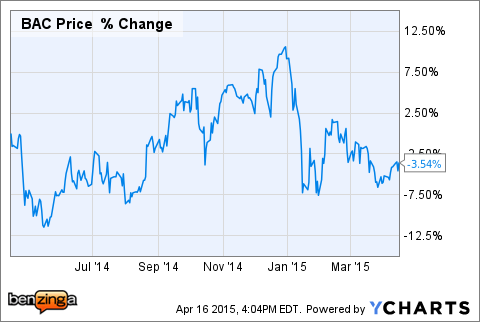
Investors that bought the stock three years ago are thrilled with their 63.3 percent gain.
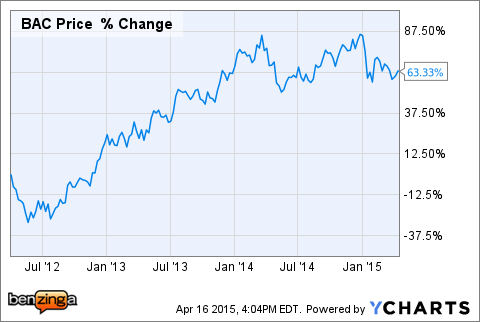
Investors that bought Bank of America five years ago have lost 12.4 percent on their investment.
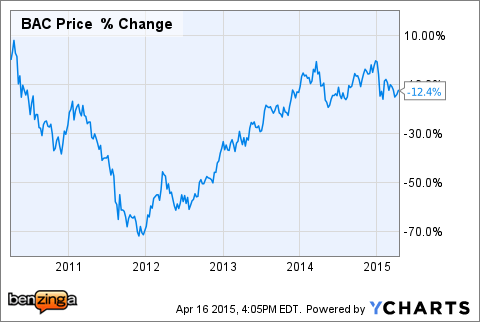
Investors that bought Bank of America six years ago have more than doubled their investment.

And of course, Bank of America investors that bought stock eight years ago, prior to the Financial Crisis, are down more than 68 percent.
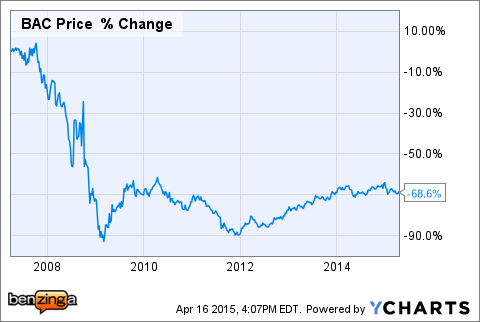
That’s one single stock that has produced five wildly different investment outcomes based strictly on timing.
The Latest Example
Oil investors are the latest to experience the beauty or horror of market timing. Shares of the United States Oil Fund ETF USO 0.5% are up more than 18 percent in the past month, and investors with good timing have enjoyed a nice payoff.
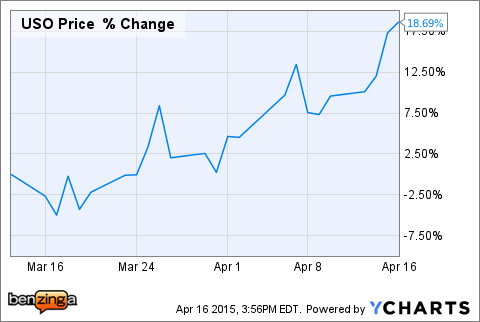
However, others who invested in oil prior to last year’s collapse are down nearly 50 percent.
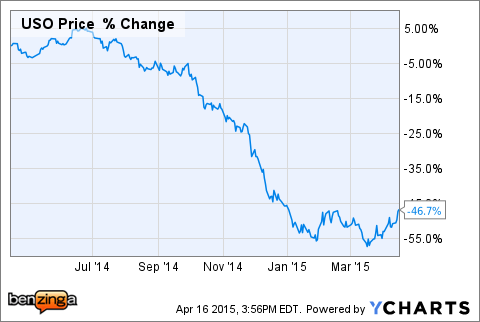
Takeaway
Sometimes there is no such thing as a “good” or “bad” investment, only good or bad timing. Certain stocks, such as Apple, are better investments than others. However, buying even the best stocks at the wrong time can cost traders a lot of money.
Before buying a stock, many investors ask themselves, “Is this the right stock?” Often times the more important question investors should be asking is, “Is this the right time?”
Read this article and all my other articles for free on Benzinga by clicking here
Want to learn more about the stock market? Or maybe you just want to be able to look sophisticated in front of your coworkers when they ask you what you are reading on your Kindle, and you’d prefer to tell them “Oh, I’m just reading a book about stock market analysis,” rather than the usual “Oh, I’m just looking at pics of my ex-girlfriend on Facebook.” For these reasons and more, check out my book, Beating Wall Street with Common Sense. I don’t have a degree in finance; I have a degree in neuroscience. You don’t have to predict what stocks will do if you can predict what traders will do and be one step ahead of them. I made a 400% return in the stock market over five years using only basic principles of psychology and common sense. Beating Wall Street with Common Sense is now available on Amazon, and tradingcommonsense.com is always available on your local internet!


